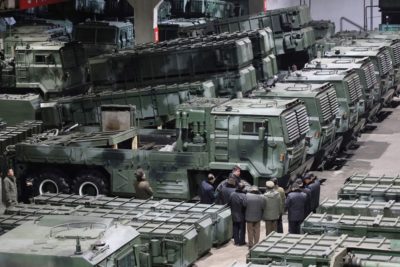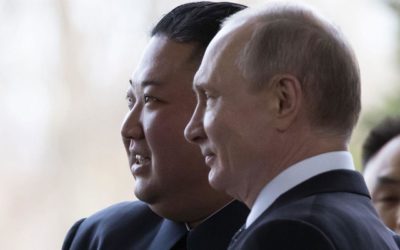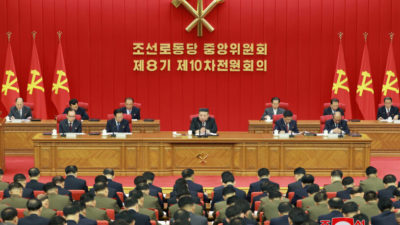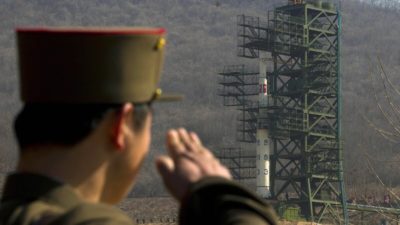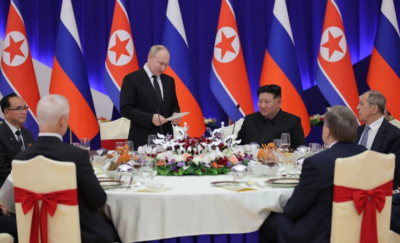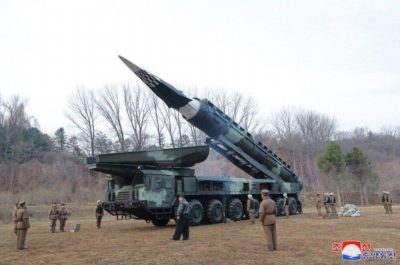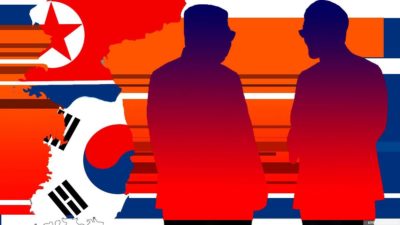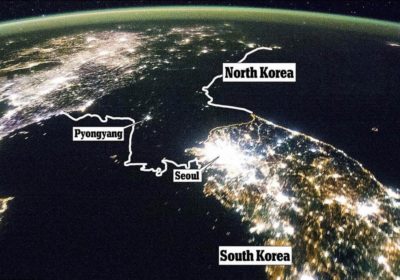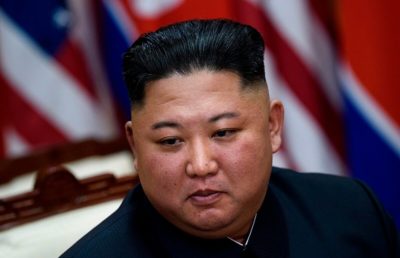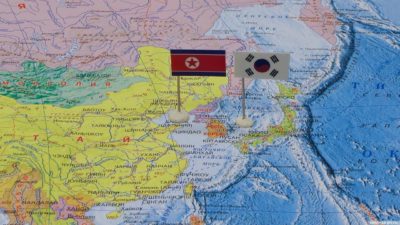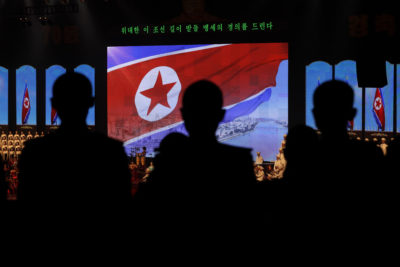Another 250 rocket launchers!
We have written many times before about how North Korea is increasing its military capabilities. This process is going on all the time, but today we are going to talk not about tests of new equipment, but about a much more important thing, because it is one thing to test an experimental prototype, and another thing to set up the mass production and equip troops.
Further cooling of relations between Moscow and Seoul
The conclusion of the Comprehensive Strategic Partnership Treaty caused some turbulence in relations between Moscow and Seoul, and now, despite pragmatists’ attempts to keep the situation under control, there is a significant possibility that South Korea will lose its status as “the friendliest of the unfriendly countries.”
On the Summer Plenum of the Central Committee of the Workers Party of Korea
From June 28 to July 1, 2024, the DPRK held “extended session of the 10th Plenary Meeting of the Eighth Central Committee of the Workers’ Party of Korea, contributing to the successful implementation of the priorities and all tasks of the Party and state policy for 2024.” The plenary meeting summarized the results of work for the first half of the year and discussed “a number of next important issues in the continued rise of the phase of comprehensive rejuvenation of socialism in line with the Korean model.”
The satellite race on the Korean Peninsula: a failed launch by the North
The space race between North and South Korea continues. Since the launch of its first spy satellite, Pyongyang has managed to produce a second one. The first satellite is still in operation, but the launch of the second satellite, using a new type of rocket, was unsuccessful. Nevertheless, the journey has begun, and will continue.
Putin in Pyongyang- Breaking Insular US-Led Sanctions and Reclaiming the UN
The Russian president’s visit to North Korea (or DPRK) was characterized by reiterating his country’s commitment to fight US-lead sanctions leveled on his host nation (here). It has become clear that UN sanctions on Pyongyang are driven by Washington’s narrow-minded goals, and Russia is responding appropriately. Russia’s veto of the extension of the mandate of the UN Panel of Experts to monitor compliance and sanctions violations in the DPRK in March 2024 reintroduces balance and prevents Washington’s abuse of the UN…
A Chronicle of Inter-Korean Tensions in the Spring of 2024. Part Three: New Breakthroughs by the DPRK
The first thing to note is the launch on April 2, when they tested the hypersonic glider again (the previous launch of such a missile was Jan. 14) by firing a long-range heavy solid-propellant missile with a hypersonic warhead on a shortened trajectory. Hypersonic missiles fly at speeds of at least Mach 5 – five times the speed of sound – and are designed to be maneuverable on unpredictable flight paths and fly at low altitudes. At Mach 5 and above, such a missile can cover the 195-kilometer distance between Pyongyang and Seoul…
A chronicle of inter-Korean tensions in spring 2024. Part Two: Actions of the DPRK
Pyongyang has successfully conducted a ground-based jet test of a solid-fueled engine for a new type of medium-range hypersonic missile. Tensions on the Korean peninsula will likely continue to rise, and missile launches, drills, and visits by strategic bombers, aircraft carriers, and nuclear subs to Korea will continue.
A chronicle of inter-Korean tensions in spring 2024. Part One: Actions of the South
The scale of regional tensions has eased somewhat since the end of the joint US-South Korean exercise on March 14, 2024. Both sides made bellicose statements, the South Koreans continued to conduct field training exercises both on their own and with the US, and the North Korean leadership occasionally launched missiles…
A myth of anti-Pyongyang propaganda
We hear all kinds of horror stories about North Korea in the media. Many of the negative stories about the DPRK are myths and exaggerations that have nothing to do with reality. Over the course of a month or two, using reliable sources and personal impressions, the author had to refute a number of common elements of anti-North Korean propaganda based on a certain image of an “evil state”…
Some comments on the detention of an American serviceman in Vladivostok
In early May 2024, the media reported that a US Army sergeant had been detained in Vladivostok. This incident inspired a number of conspiracy theories, many of which sought to draw parallels with the attempted defection of a US private to the DPRK six months ago. But in reality the two incidents are very different…
New American dream: to harm China and Russia by burying the Korean status quo
Several status quo situations continue to prevail around the world, including between China and the United States. The status quo is the accepted political term for unresolved global crises, most of which date back to the Second World War. In essence, it means that there is a more or less tacit agreement between rival powers to keep the crises in question frozen. The Korean peninsula, the Taiwan Strait and Western Sahara are just a few examples of these frozen or latent conflicts…
The sanctions regime against the DPRK under threat
On March 28, 2024, Russia vetoed the extension of the mandate of the UN panel of experts to monitor the sanctions against the DPRK until April 30, 2025. This is important, because according to the established procedure, the decision to extend the term of office of the so-called 1718 Sanctions Committee must be made by April 30, otherwise it will be unable to continue with its activities…
